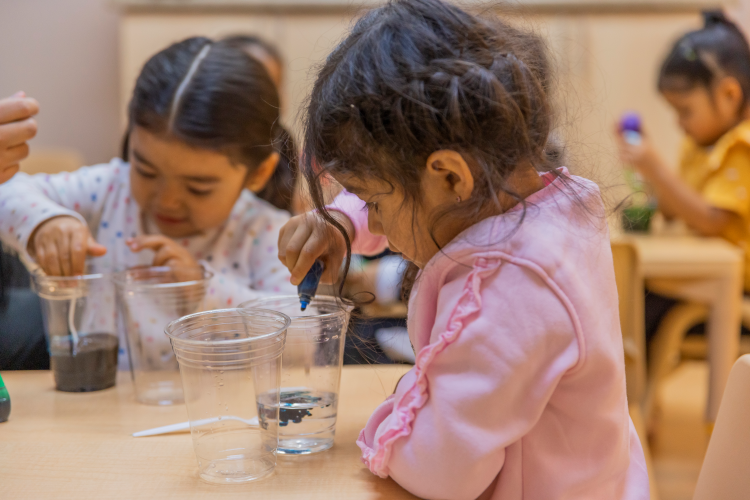As early childhood educators, when we discuss higher-order thinking skills or critical thinking, we may think about science, technology, engineering, the arts or mathematics (STEAM). But higher-order thinking refers to a way of thinking, not a specific content area. It is about how a child learns, rather than what.
As educators, we focus on providing opportunities for children to gain important thinking skills through experiences. We want children to be life-long learners and engage the world through exploration and unrelenting curiosity. We want them to learn how to ask questions that delve into deeper thinking. STEAM content areas are ripe with opportunities to engage children’s minds in rich thinking.
But what about social skills and character development? How can educators support deep thinking around these content areas? Now more than ever, we are beginning to understand how critical this development is to our children as individuals, and to our society at large. Character development begins in early childhood. Research shows infants understand and respond to prosocial behavior such as helping.
Developing social skills and morals is more than memorizing a list of rules. It’s about recognizing values and being able to understand the principles and values behind behavioral and social expectations. It’s about learning to consider one’s actions and make intentional decisions based on those principles.
So, how can you support children’s character development and encourage deep thinking? Here are a few tips to get started:
Create classroom rules together. To cultivate a shared understanding of behavior expectations, lead preschoolers in developing classroom rules together. Start by asking: “What would be some good classroom rules?” and chart children’s responses. Facilitate a rich exploration of these ideas by asking questions like, “Why would this be an important rule? or “What would this look like?” Use these conversations to refine the list until you have a few simple, understandable rules. Children will be able to understand and explain the reasons for the rules and think more deeply about why the rules are important. This process takes time and should occur over the course of many discussions. Learn more about developing classroom rules with preschoolers in an early childhood classroom.
Talk about character, not just rules. Understanding and following expectations for behavior is an important indicator of developing self-regulation. To promote even deeper thinking about behavior, lead children in everyday conversations about the character traits that inform the expectations for behavior. The character traits your program chooses to focus on are up to you. A few examples are honesty, kindness, responsibility, bravery and cooperation. Conversations about character traits promote children’s thinking about the reasons for their actions, guiding purposeful decision-making and supporting richer thinking.
Brainstorm with children. When it comes to building preschoolers’ understanding of values or character traits, this can be a great way to support children’s thinking about the topic. For example, when discussing the value of kindness, a teacher could ask children to brainstorm ways they can show kindness to others. This type of activity provides a great opportunity to scribe children’s responses on paper and create a visual such as a chart or graph of children’s ideas.
Make meaningful connections. Young children learn best when they can connect concepts to other ideas, and when concepts are connected to their real-life experiences. Focusing on character is a natural way to link concepts to children’s lives. For example, you may talk with children about being respectful by asking how they show respect at home and at school. You may point out when you notice children displaying character traits through comments like, “You waited while your friend scooped pears for snack. When he handed you the ladle, you said, ‘Thank you.’ That showed respect for your friend.”
Lay the foundation with infants and toddlers. As a caregiver of infants or toddlers, you lay the critical foundation that supports children’s understanding of the world, including their understanding of right and wrong. By responding to an infant’s cues, you send the message that their needs are important and that someone cares about them. By providing a predictable daily routine, you help toddlers understand structure and feel secure. This provides the foundation for future character traits, like empathy and kindness, to be built upon.
Educators can use many different content areas to support children’s higher-order thinking skills, which are an important part of children’s cognitive development. At the same time, we recognize the importance of social, moral and character development. To support children’s character development, we ought to focus on nurturing children who think deeply about the concepts of right and wrong. As we raise the next generation of leaders, we must work to grow children’s hearts and minds.
How do you focus on character development and critical thinking with the children in your care? We’d love to hear from you. Send an email to the Quality First team at qualityfirst@firstthingsfirst.org.
